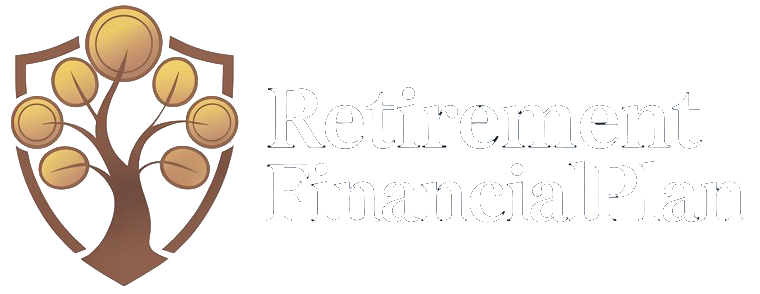The financial independence retire early (FIRE) community is a very supportive and tight-knit one. Because the community is made up of folks who have different backgrounds and different ages, it’s very diverse (not just Caucasian bros from high tech).
One thing I appreciate from the diverse FIRE community is that there are people ahead of us who are always willing to share their knowledge and help others slightly behind them on the FIRE journey.
Earlier this year, after having been financially independent for a while, Dividend Daddy decided to step away from work to pursue other passions! Since stepping away from work, Dividend Daddy has been travelling around the globe and enjoying life.
I’m happy to have Dividend Daddy joining me today on the latest Early Retirement Q&A.
Q1: Welcome back Dividend Daddy. Congratulations on reaching FIRE and stepping away from full-time employment. Can you tell us a little bit about yourself?
I’m in my late 40s and Canadian. I worked in high pressure roles for my working career and this January, I pulled the plug on full-time work. With return to office mandates clashing with my desire for work location freedom, work was no longer tenable for me so I stepped away. As of July 2025, I’ve been retired for 7 months and travelling a ton.
Tawcan: Amazing stuff!
Q2: You and I utilize hybrid investing, a combination of individual dividend stocks and low-cost ETFs. What made you decide on utilizing hybrid investing in the first place?
Replicating the Canadian stock market is super easy so I buy individual Canadian dividend stocks and get the dividend tax credit for doing so.
Internationally, in the U.S. and world, it’s very hard to do that yourself so buying an index fund like $VTI and an ETF like $XAW just makes sense.
Q3:What made you decide to finally pull the plug and step away from full-time employment? Walk me through your decision process.
It was a mix of mental burnout and circumstances at my job that led to my early retirement. Of course, I had done the “math” several times and early retirement was possible financially for me.
Being financially independent meant that I had the control to decide my future. If work arrangements no longer suited my needs, I could walk away from them. So, that’s what I did.
At this stage, I wanted time freedom more than I did the next pay cheque.
Tawcan: that makes a lot of sense. In some level I’m probably there too.
Q4: Tell me more about your plans for this new chapter of your life.
Right now, it’s all about travel. I’m doing a ton of it and I have to say, it’s great without having the stress of work or a job on your mind.
I’m not travelling with a laptop for the first time in a very long time. Just my smartphone. Being untethered from your job while travelling is so very freeing, mentally and physically. It’s wonderful.
Q5: Prior to stepping away from full-time employment, did you do a lot of soul-searching to determine what you plan to do in early retirement? Why is this an important process for early retirement?
I did do some soul-searching and planning. Nothing rigorous, trusting myself to figure it out. Some planning is important because you suddenly have many more hours in a day and week to fill.
For me, I increased the amount of pickleball I play (when I’m at home), I cycled way more at home and abroad, increased the amount of time I spend at my second home in Mexico (to avoid those nasty Canadian winters), and have been travelling a ton more.
Q6: I know you were considering doing part time work with your previous employer. Did that ever happen? Why and why not?
I did not end up doing part-time work with my employer. Circumstances changed at my employer and that flexibility was no longer available.
I may end up doing some very limited consulting in the future but that’s not on the table for 2025 or 2026. I do miss aspects of my work.
Q7: Tell me a bit more about your portfolio withdrawal strategy. I believe you plan on withdrawing from non-registered (N) and registered (R), and leaving TFSA (T) untouched for as long as possible? Are you planning to collapse your RRSP early? Or do you envision converting RRSPs to RRIFs at some point?
Not sure completely yet on strategy but I’ve only been early retired for 7 months as of July 2025. I’m definitely spending dividends from my non-registered account with a cash reserve/bucket of $75,000.
I will reinvest most dividends from my RRSP and all of them from my TFSA. I will need to seek professional advice for what to do with my RRSP going forward and whether spending it down is advisable give tax planning purposes.
Q8: Why is it important to “learn” how to spend money and enjoy life a bit more in retirement rather than a “save-save-and-save-some-more” mentality so many FIRE seekers tend to have?
Life is short. This hits you as you approach 50 years old. My parents’ generation is starting to pass on and I know I’m next in line (hopefully a long way off still).
So there are things I want to do and work was getting in the way. So while I could have grown my portfolio even more, given my large multiple 6-figure previous employment, enough was enough. It’s your “money or your life” at the end of the day.
So while I’m still frugal, I’ve loosened the purse strings. I stay at private Airbnbs rather than hostels. If I land in a location and it’s late at night, I will take the expensive Uber rather than cheaper bus. I dine out more frequently than I did when I was younger and travelling.
Q9: What’s your plan on equities vs. fixed income allocation in semi-retirement and early retirement? Do you plan to shift more towards fixed income as you get older?
Nope. I’m something like 90% stock and 10% cash/bonds, give or take.
Given that I live off of cash flow from dividends and I don’t spend what my portfolio generates, I don’t worry about being so exposed to equities.
Stocks can go down in value, but for the most part over my investing career of 20+ years, my dividend paying stocks have continued to pay dividends and in many cases, have increased dividends.
Q10: In retirement, what’s more important, income flow or portfolio value preservation? Or is it both?
Both I think, for me anyway.
I like the income that dividends provide, which is fairly stable and predictable (depending on what you’re invested in).
This means I don’t have to spend principal down. Studies confirm most retirees find it hard to sell shares and spend principal in up or down markets. I’m no different, though I recognize I will have to at some point.
I’ve heard about several high profile “total return investors” as of late who find it hard to sell shares in early retirement with the volatility of markets and the “Trump tariff” factor. I don’t have this problem with a dividend focused approach that helps address any sequence of returns risk.
Q11: You have been travelling a lot. What are your travel plans for the next year or two? It was too bad we weren’t able to connect when I was in Toronto last time. Any plans to come for a visit to Vancouver?
The closest I will be to Vancouver is catching a cruise to Tokyo from Seattle this fall. I plan to spend about 5 months in Asia.
So far this year, I’ve spent 3 months in Mexico, 2 months in Toronto, and 3 months in Europe (as of August 2025).
Q12: How do you deal with cash reserve or emergency fund in early retirement? Do you set aside a certain amount of money?
I’ve got about $75,000 cash reserve or bucket. This amount isn’t too much so as to create “drag” given that cash loses out to inflation but is enough to pass the “sleep well at night” test for me.
As dividends in my non-registered account come in, I top up my cash bucket. I reinvest TFSA dividends and re-invest some of my RRSP dividends while letting cash build up in my RRSP to fund things like my TFSA contribution in 2026.
After 7 months of early retirement, I’m financially further ahead despite no traditional job income and months of higher spending while travelling.
Q13. Looking back on your financial independence journey, are there certain things you would have done differently or changed if you were to start the journey today?
I would have invested more earlier on and definitely bought more during the down stock market year in the U.S. in the 2000s. (My income was lower than but I think I could have been more frugal at times).
Q14 Any good retirement and money books you’d recommend reading?
I’m more of a podcast guy (in no particular order), my 3 favourite financial focused podcasts:
- Bigger Pockets Money
- ChooseFI
- Earn & Invest
Q15. What would you tell someone like me who is trying to achieve financial independence? Do you have any advice for FIRE
Bob, you are well on your way to FI, so I don’t think I have anything to tell you that you don’t already know.
One thing, though, is that making the jump into early retirement is scary. I did the whole one more year thing, if not a few more years, but once I jumped, I haven’t looked back.
It was the right decision for me at that moment in time. When your time comes, you will just know. Trust me.
Q16. Do you have anything else you would like to share with me and my readers?
It may not seem like it, but every time you invest in the stock market, you’re one step closer to your goal, if it’s early retirement, financial independence, or otherwise.
Thank you very much, Dividend Daddy, for sharing your story and insight with us. I’m very excited to hear more about your retirement life on X and hopefully we can meet in person one of these days and nerd it out personal finance style! I’m sure my readers really appreciate this excellent Q&A interview.
If you want to learn more about what Dividend Daddy is up to, you can find him on X and his blog:

